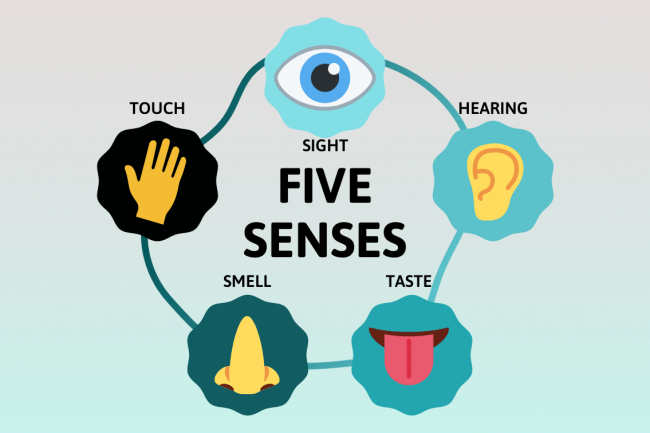When you’re a chronic overthinker, your mind never stops. Today it could be overanalyzing the past; tomorrow, it could be worrying about the future. It’s exhausting. All you want is to stop the noise. You want to know how to get out of your head and into the moment so that you can start living.

If you identify with any of the following, it could indicate that your overthinking has become a problem:
- Overthinking has made it difficult for you to fall asleep.
- Overthinking has made it difficult for you to make decisions or to take action.
- The content of your thoughts is mostly negative.
- You tend to think of worst-case scenarios.
- You have been unable to stop overthinking.
If you can relate to anything listed here, then your overthinking is probably causing you a lot of anxiety and needs to be managed. You might also look at these quotes on overthinking to check how you relate to them.
In this article, we’ll look at 11 strategies to help you quit overthinking and obsessing over every little thing.
Sections
How to stop overthinking
Repetitive, negative thoughts that occur over a long period of time, and that are not properly managed, can lead to serious mental health disorders like anxiety and depression.[1] Fortunately, obsessive thoughts can be managed by training the mind to think differently.
Here are 11 ways to change your mindset and stop overthinking:
1. Become aware of your thoughts
Overthinking is kind of like a bad habit. If you have been an over-thinker for a long time, then this is probably your “default” way of thinking.
One way to break a habit is to become aware of it. Awareness gives you more power to change your destructive thought patterns.
The next time you can’t stop thinking about something, pay attention. Ask yourself what started your thought cycle and whether you have any control over what you’re obsessing about. Make some notes in a journal. This will help you process what you can’t control. It will also give you more clarity when it comes to finding solutions to problems that are within your control.
2. Challenge your thoughts
As an overthinker, you probably have a “negativity bias.” Put simply, you tend to focus more on the negative things that have happened or that could happen to you.
To cope with this, examine your thoughts from a more objective perspective. Say you had the thought, “Nobody responded to my comment because it was stupid. I’m an idiot.” What facts can you find to either support or dispute this claim? Is there another way to view this situation? What advice would you give a friend having these thoughts?
Asking these questions will encourage more positive self-talk and will help reframe your mindset into a more compassionate one. The kinder you are to yourself, the less room you will have for the self-criticism and self-doubt that accompanies overthinking.
Maybe, when you consider the facts, you realize that people tend to be quiet in meetings in general. Being objective allows for a more balanced view of the situation to emerge. Your new thought becomes: “People didn’t respond to my comment because they didn’t have anything worthwhile to say.”
3. Focus on problem-solving
Overthinking can prevent people from taking action or making decisions. This can stem from perfectionism and wanting to be in control.
In these situations, it helps to exercise your problem-solving skills.
Here’s how:
- Brainstorm at least three possible solutions to your problem.
- Go through the pros and cons of each solution.
- Decide on the best solution.
- Come up with some practical steps to carry out the solution you chose.
Let’s look at an example in practice. Say your problem is that you hate your job. The three possible solutions you come up with include resigning, finding a new job, or getting a second job. After a pros and cons analysis, you choose to find a new job. The next steps you come up with to carry out your solution may include updating your resume, searching job boards, and sending out applications.
4. Use mindfulness to ground yourself in the present
Over-thinkers tend to live in the past or future. They often find it very difficult to live in the moment, relax, and enjoy life. By learning how to practice mindfulness, it is possible for overthinkers to become more grounded in the now and not get carried away in endless thought spirals.
Mindfulness is all about focusing on what is going around you at any given moment. You can practice being mindful by using your 5 senses. When you start overthinking, look around. What are 5 things that you can see, touch, feel, taste, smell, and hear? Do this the next time your thoughts start racing, and you will feel more connected to the here and now.

5. Use distraction
People tend to overthink more when they are not very busy or focused on a specific task. Overthinking can happen anywhere and at any time, but it happens more often at night or at other times when the mind is not consumed by things like school or work.
If you start overthinking the moment you have some free time and it’s stressing you out, try to create a distraction. The point of creating a distraction is to shift your focus onto something other than your negative thoughts.
Examples include things that require mental focus, like drawing or completing a puzzle. Physical activity also works well to get you out of your head and into your body.
6. Focus on others
Shifting your focus outward toward others, especially toward being helpful to others, has more than one benefit when it comes to overthinking. Not only does it provide a great distraction from what is going on internally, but it also boosts positive feelings.[2]
So, the next time you’re caught up in your thoughts, think of practical ways that you can help someone in need. It could be anything from offering to make dinner for a friend to helping at a local soup kitchen.
Helping others, especially those less fortunate than you helps foster an attitude of gratitude and also helps you spend your time more productively.
7. Imagine what could go right
When people overthink, they usually imagine different “what if” outcomes in great detail. It’s almost like a video, or series of videos containing the worst-possible scenarios, plays out in their minds over and over again.
If this is something that you can relate to, why not try to rewind those negative “tapes” and replace them with positive ones. Instead of playing the same old, damaged tapes put a brand new one on. Try rethinking the scenario: imagine what could go right versus what could go wrong this time.
8. Put your thoughts on an imaginary shelf
If your overthinking is preventing you from getting on with your day and being productive at work or at school, try delaying it.
Tell yourself that you are going to “put your thoughts on the shelf” and bring them out again later. Choose a time later where you’ll allow yourself 30 minutes to revisit them. This allows you to trick your brain. Instead of completely denying your brain from thinking about something, you’re saying “not now.”
Do you remember being told as a child to clean your room and responding, “I will do it later?” You were hoping that your parents would have forgotten about it later. It is the same concept here. The goal is that you will have forgotten about the problem and that it will have lost importance when later comes around.
9. Leave the past behind you
Overthinkers have a hard time letting go of what happened in the past and spend a lot of time wondering what could have, would have, or should have been. This uses up a lot of precious mental energy and is not productive. Why? Because the past cannot be changed.
What can be changed is how you think about the past. Instead of ruminating about your past mistakes and past hurts and wishing you could change them, try something different.
Let’s say you’ve been overthinking a conversation you had with someone that went wrong. Instead of focusing on what went wrong, ask yourself what you learned from the experience. Maybe you learned something about how to better manage conflict moving forward.
10. Practice gratitude
One way to fix overthinking is to replace the bad habit of thinking negatively with the good habit of thinking more positively.
To do this, set aside some time daily to think about and jot down some things that you are grateful for each day. You will find that making time to reflect on the things that you are grateful for leaves less time for negative thoughts to creep into your mind.
If you want to make this activity more interesting, get a gratitude accountability buddy who you can exchange gratitude lists with each day.

11. Ask for help
Perhaps you have already tried everything mentioned in this article, but you have not made any progress. No matter how much effort you have put in, it hasn’t been enough to ease your anxiety and reach a calmer state of mind.
In this case, it would be advisable to seek help from a licensed mental health professional. You may have an underlying psychological disorder, like depression, anxiety, OCD, or ADHD. Mental health disorders typically require counseling and sometimes medication, too.
We recommend BetterHelp for online therapy, since they offer unlimited messaging and a weekly session, and are cheaper than going to a therapist's office.
Their plans start at $64 per week. If you use this link, you get 20% off your first month at BetterHelp + a $50 coupon valid for any SocialSelf course: Click here to learn more about BetterHelp.
(To receive your $50 SocialSelf coupon, sign up with our link. Then, email BetterHelp’s order confirmation to us to receive your personal code. You can use this code for any of our courses.)
Common questions
Is overthinking a mental illness?
Overthinking is not a mental illness on its own, but it can be a symptom of an underlying mental health disorder, such as depression, anxiety, obsessive-compulsive disorder, or ADHD.
Is overthinking a sign of intelligence?
Some research [3] suggests that there could be a link between verbal intelligence and worrying and rumination.
Is overthinking a sign of ADHD?
It is possible as ADHD has been associated with overthinking and rumination.[4] If you suspect you may have ADHD, you should opt for a professional assessment of your symptoms. Only a professional can diagnose you.
Is overthinking bad?
There is some good in being able to analyze past experiences and mistakes, as this is how people learn. However, dwelling on past failures and excessive worrying about the future is unproductive and can be harmful. It can lead to indecision and inaction and is linked to depression and anxiety.
Why do we overthink?
Overthinking is not fully understood by scientists, but it is likely driven by fear.[5] If you’re overthinking about the past, the fear could be around the past repeating itself. If you’re overthinking about the future, the fear could be around your capacity to control it.


Thank you!